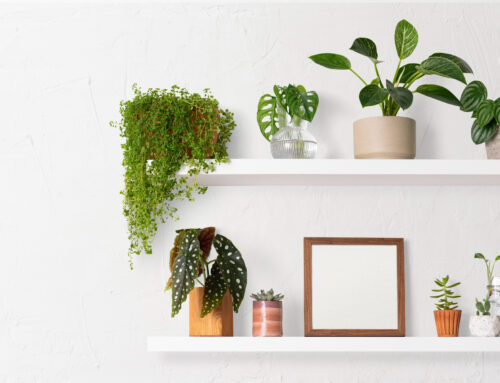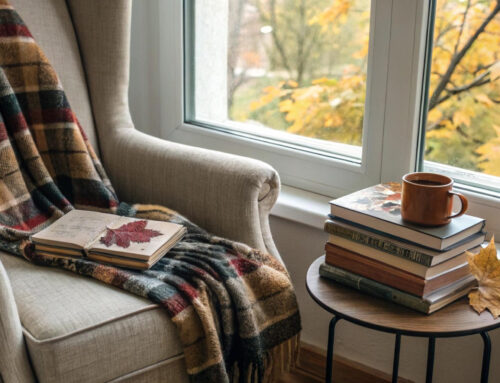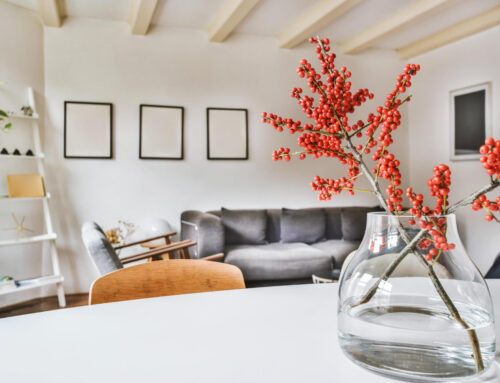 Being a Considerate Neighbor: Apartment Conduct That Everyone Ought to Be Aware Of
Being a Considerate Neighbor: Apartment Conduct That Everyone Ought to Be Aware Of
Living in an apartment can be a delightful experience, but it can also come with its challenges. One of the most significant issues residents face is maintaining harmonious relationships with their neighbors. Noise complaints, shared spaces, and differing lifestyles can lead to misunderstandings and tension. However, by practicing good apartment etiquette, you can foster a friendly and respectful community that enhances everyone’s living experience.
This guide will provide you with essential tips and insights on how to be a good neighbor in an apartment setting. From understanding noise levels to sharing communal spaces, we’ll cover everything you need to know to create a positive environment. By following these guidelines, you can contribute to a community where everyone feels comfortable and valued.
Understanding and implementing apartment etiquette is crucial not just for your peace of mind but also for the well-being of your neighbors. This guide is designed to help you navigate the complexities of apartment living with ease and grace. Let’s dive into the essential practices that will make you the neighbor everyone appreciates!
Quick Summary
- Learn the importance of noise control and respectful communication.
- Understand how to share communal spaces effectively.
- Discover the benefits of being proactive in neighborly relationships.
- Get expert insights on fostering a friendly community.
What Is Apartment Etiquette?
Apartment etiquette refers to the set of unwritten rules and behaviors that promote harmony and respect among residents living in close proximity. It encompasses aspects such as noise control, cleanliness in shared spaces, and respectful communication, all of which contribute to a pleasant living environment.
Understanding Noise Levels
Noise is one of the most common sources of conflict in apartment living. Whether it’s loud music, late-night parties, or even the sound of footsteps, being mindful of your noise levels is essential. Start by understanding the noise policies set by your apartment management. Most complexes have quiet hours, typically during the night, when residents are expected to keep noise to a minimum.
Consider investing in rugs or carpets if you live in a unit with hard floors. These can significantly reduce sound transmission between floors. Additionally, if you plan to host a gathering, inform your neighbors in advance. A simple heads-up can go a long way in preventing misunderstandings and fostering goodwill.
Moreover, if you find yourself disturbed by noise from a neighbor, approach the situation with kindness. Instead of confronting them aggressively, consider writing a polite note or having a friendly conversation. This approach not only resolves the issue but also builds a rapport with your neighbor.
Expert Insight: According to Dr. Emily Johnson, a sociologist specializing in community living, “Effective communication is key to resolving noise disputes. When neighbors feel respected and heard, they are more likely to cooperate.”
In summary, being conscious of noise levels and communicating openly with your neighbors can significantly enhance your apartment living experience. By taking these steps, you contribute to a peaceful and enjoyable environment for everyone.
- Be aware of your noise levels, especially during quiet hours.
- Use rugs to minimize sound transmission.
- Communicate openly with neighbors about potential disturbances.
Sharing Communal Spaces
Communal spaces such as hallways, laundry rooms, and lounges are shared by all residents, making it essential to maintain cleanliness and respect in these areas. Start by cleaning up after yourself. If you use the laundry room, promptly remove your clothes once they are done to allow others to use the machines. Leaving your belongings unattended can lead to frustration among neighbors.
Additionally, consider the shared amenities like the gym or pool. When using these facilities, be mindful of your time and the number of guests you bring. If the space is busy, limit your time on machines or equipment to allow others a chance to use them. This small act of consideration can make a significant difference in how others perceive you as a neighbor.
Another important aspect of sharing communal spaces is respecting the rules set by your apartment management. These rules are often put in place to ensure everyone has a pleasant experience. If you notice someone violating these rules, approach them politely rather than reporting them immediately. A friendly reminder can often resolve the issue without escalating tensions.
Real-World Case Study: At Riverstone Apartments, a group of residents initiated a monthly cleaning day for the communal areas. This not only improved the cleanliness of shared spaces but also fostered a sense of community among residents. Participants reported feeling more connected and responsible for their living environment.
In conclusion, being considerate in communal spaces is crucial for maintaining a harmonious living environment. By cleaning up after yourself, respecting shared amenities, and adhering to community rules, you contribute to a positive atmosphere for all residents.
- Always clean up after yourself in communal areas.
- Be mindful of your time and guests in shared facilities.
- Respect the rules set by apartment management for communal spaces.
Respecting Privacy and Personal Space
Respecting your neighbors’ privacy and personal space is fundamental to being a good neighbor. While it’s great to be friendly, it’s equally important to recognize when someone may not want to engage. If you see a neighbor in passing, a simple smile or wave is often enough. Avoid lingering too long or asking intrusive questions unless they seem open to conversation.
When it comes to shared walls, be mindful of your activities. If you have a pet, ensure they are well-trained and do not disturb others. Barking dogs can be a significant source of annoyance, so investing time in training can benefit both you and your neighbors.
Additionally, if you have a balcony or patio, be considerate of what you display. Avoid hanging items that may be unsightly or offensive to others. This simple act of respect can go a long way in maintaining a peaceful coexistence.
Expert Recommendation: Community living expert, Sarah Thompson, suggests, “Creating a friendly atmosphere starts with respecting boundaries. Acknowledge your neighbors’ need for privacy, and you’ll build trust and goodwill.”
In summary, respecting privacy and personal space is essential for fostering positive relationships with your neighbors. By being considerate and aware of your surroundings, you create a more pleasant living environment for everyone.
- Be aware of your neighbors’ privacy and personal space.
- Train pets to minimize disturbances.
- Keep shared areas visually appealing and respectful.
Building Community Relationships
Building relationships with your neighbors can significantly enhance your apartment living experience. Start by introducing yourself when you move in. A friendly greeting can break the ice and set the tone for future interactions. Consider hosting a small gathering or inviting neighbors for coffee to foster connections.
Participating in community events organized by your apartment management can also be a great way to meet neighbors. These events often provide opportunities for residents to socialize and build a sense of community. Whether it’s a potluck, game night, or holiday celebration, engaging in these activities can help you form lasting friendships.
Moreover, consider creating a neighborhood group chat or social media group. This platform can be used to share important information, organize events, or simply chat about daily life. Having a dedicated space for communication can strengthen community bonds and make it easier to address any concerns that arise.
Real-World Case Study: At Riverstone Apartments, residents formed a book club that meets monthly. This initiative not only encourages reading but also fosters friendships among participants. Many members have reported feeling more connected and engaged in their community as a result.
In conclusion, building community relationships is vital for enhancing your apartment living experience. By being proactive in social interactions and participating in community events, you can create a supportive and friendly environment for all residents.
- Introduce yourself to neighbors when you move in.
- Participate in community events to meet others.
- Create a group chat for easy communication among residents.
Being a good neighbor is an essential aspect of apartment living that can significantly enhance your experience and that of those around you. By understanding noise levels, sharing communal spaces respectfully, respecting privacy, and building community relationships, you contribute to a positive living environment. Remember, small acts of kindness and consideration can lead to a happier and more harmonious community.
If you have any questions about apartment etiquette or want to share your experiences, feel free to leave a comment below. And if you’re looking for a welcoming community to call home, consider reaching out to Riverstone Apartments today!
Interested in learning more about apartment living? Subscribe to our newsletter for tips and updates!
FAQs
Question: What should I do if my neighbor is too noisy?
Answer: Start by having a friendly conversation with them about the noise. If the issue persists, consider documenting the disturbances and discussing it with your apartment management.
Question: How can I make my apartment more soundproof?
Answer: Consider adding rugs, curtains, and soundproofing panels to your walls. These can help absorb sound and reduce noise transmission.
Question: What are some good ways to introduce myself to my neighbors?
Answer: Try knocking on their door with a friendly smile and a small treat, like cookies. Alternatively, you can invite them for coffee or a casual get-together.
Question: How can I keep shared spaces clean?
Answer: Always clean up after yourself and encourage others to do the same. Consider organizing a cleaning day with your neighbors to maintain shared areas.
Question: What should I do if I have a pet that barks excessively?
Answer: Invest time in training your pet to minimize barking. If the issue continues, consider consulting a professional trainer for assistance.
Question: How can I foster a sense of community in my apartment complex?
Answer: Organize social events, create a group chat, or start a club based on shared interests. These activities can help residents connect and build relationships.
Question: What are quiet hours in apartment living?
Answer: Quiet hours are designated times, usually during the night, when residents are expected to keep noise to a minimum to respect their neighbors’ peace.
Question: How can I handle conflicts with neighbors?
Answer: Approach the situation calmly and respectfully. Open communication is key; address the issue directly and seek a mutually agreeable solution.
Question: Why is apartment etiquette important?
Answer: Apartment etiquette fosters a respectful and harmonious living environment, reducing conflicts and enhancing the overall community experience for all residents.







